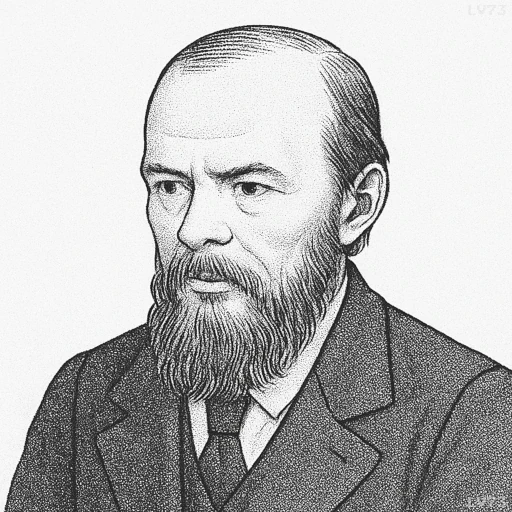“Man is fond of counting his troubles, but he does not count his joys. If he counted them up as he ought to, he would see that every lot has enough happiness provided for it.”

- November 11, 1821 – February 9, 1881
- Born in the Russian Empire
- Novelist, philosopher
table of contents
Quote
“Man is fond of counting his troubles, but he does not count his joys. If he counted them up as he ought to, he would see that every lot has enough happiness provided for it.”
Explanation
Dostoevsky’s quote touches on the human tendency to focus disproportionately on suffering and misfortune, while overlooking the blessings and moments of joy in life. He suggests that if people were to consciously acknowledge and measure their moments of happiness, they would realize that life, even in its challenges, provides a balance of both good and bad. The quote is a reminder that gratitude and perspective can transform our experience of life, helping us recognize that happiness is often present, even if it’s overshadowed by difficulties. Dostoevsky, who explored the moral and psychological complexities of life in the face of suffering, here advocates for a deeper awareness of the good things that accompany hardship.
In the context of Dostoevsky’s worldview, which was often shaped by his Christian existentialism, this perspective is closely tied to the idea that spiritual growth and redemption can coexist with suffering. His characters frequently struggle with existential questions and face immense hardship, but through these trials, they often find meaning, purpose, and moments of grace. This quote encourages the reader to see that even in the most difficult of circumstances, there are seeds of joy, if only one is willing to look beyond the troubles. It reflects his belief that hope and happiness are not absent from human experience, but must be sought with consciousness and appreciation.
Today, this quote remains relevant in a world where stress, anxiety, and negative thinking often dominate. In our modern lives, we are constantly confronted with news cycles, personal pressures, and the challenges of everyday living, which can cause us to focus on what is lacking or difficult. Dostoevsky’s words remind us to pause and recognize the joys—no matter how small—that exist in our lives, whether it’s a simple moment of peace, a kind word, or an unexpected act of kindness. By focusing on the positive aspects of life, we might better appreciate the balance that is provided to each individual, even in the midst of struggles. This shift in perspective can bring greater contentment and resilience in the face of adversity.
Would you like to share your impressions or related stories about this quote in the comments section?

